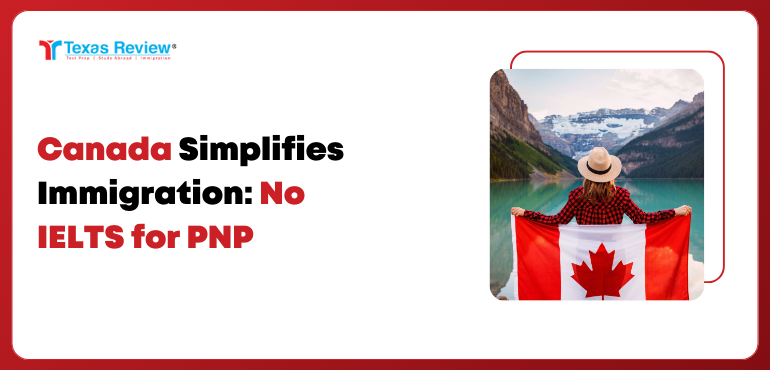
Ottawa, Canada – As of today, Canada has released a significant immigration news, eliminating the IELTS requirement for applicants in certain non-Express Entry Provincial Nominee Program (PNP) streams. The policy reform is currently in vogue among immigration aspirants, as it streamlines the process for skilled workers and students wishing to migrate to Canada.
What is Changing in the PNP?
In the past, any PNP candidate was required to demonstrate English language proficiency with standardized tests such as IELTS or CELPIP. With the new rules, some provinces no longer insist that non-Express Entry candidates write these tests. This opens the door for workers and students who could have previously been hold up by financial or logistical check in taking the language tests.
Does This Apply to Express Entry Applicants?
No, the new regulation is only for specific non-Express Entry PNP streams. Express Entry candidates are still subject to the current language test requirements because language skills are a major consideration in the Express Entry points system.
Why This Matters for Immigration Candidates
The Provincial Nominee Program (PNP) enables Canadian provinces to nominate skilled workers according to their labor market requirements. Although not all provinces have implemented this change, those that have are likely to attract more skilled professionals by eliminating the language test requirement.
By easing the IELTS requirement, Canada hopes to:
- Streamline the immigration process
- Lower costs for applicants
- Speed up application processing times
What Should Applicants Do Next?
As not all provinces have dropped the IELTS requirement, prospective applicants must verify official provincial immigration websites for the latest eligibility requirements.
Click here to visit the official website!
Wait for more news, as additional provinces might also implement similar policies in the future!














